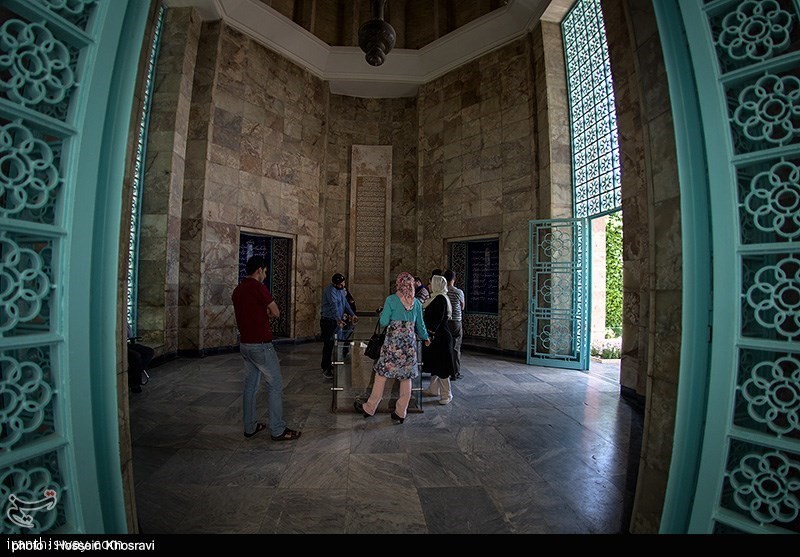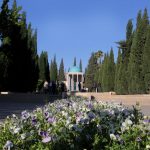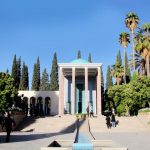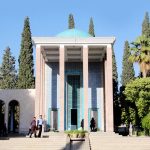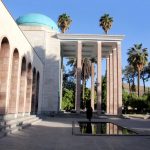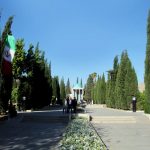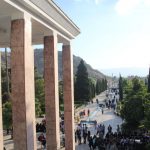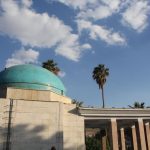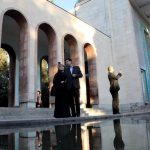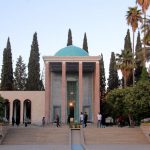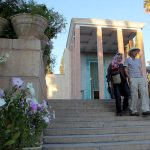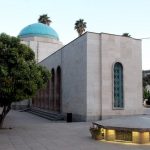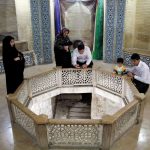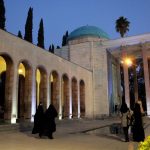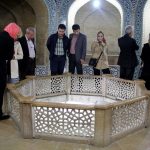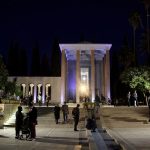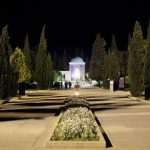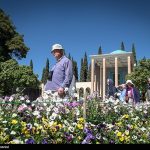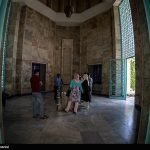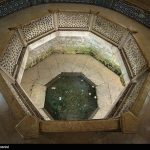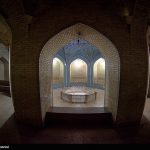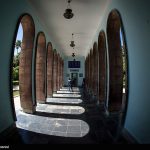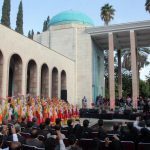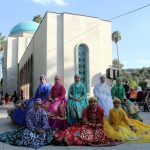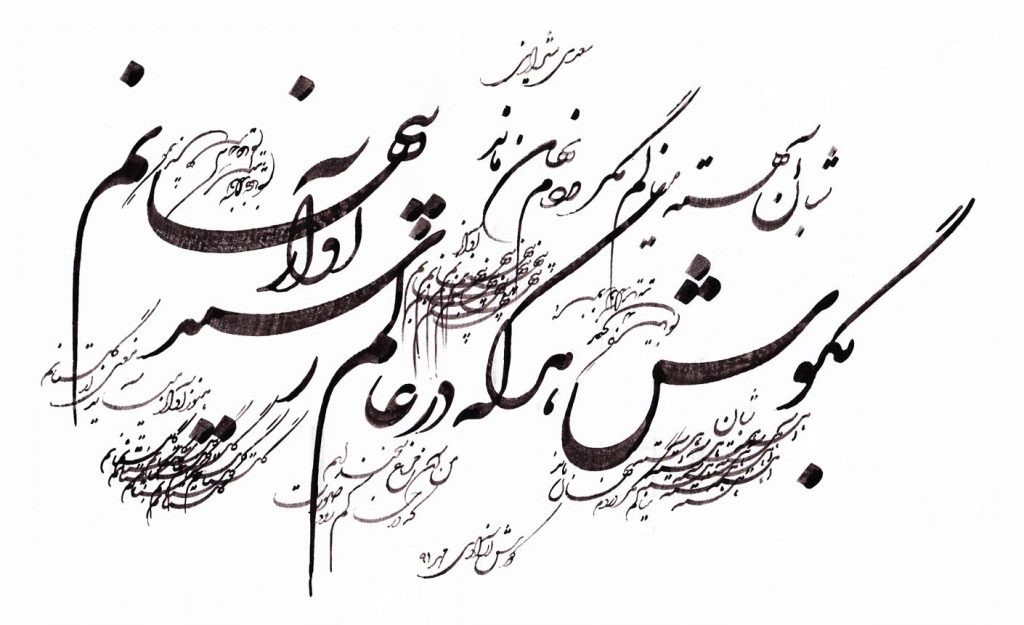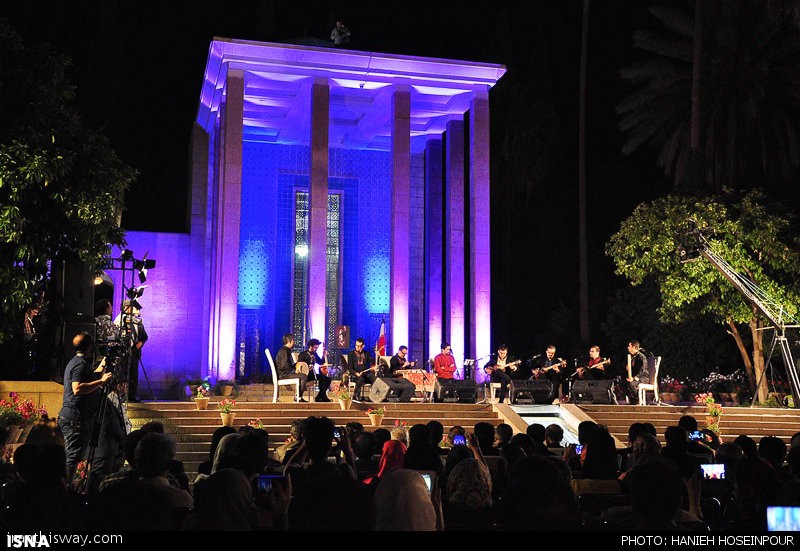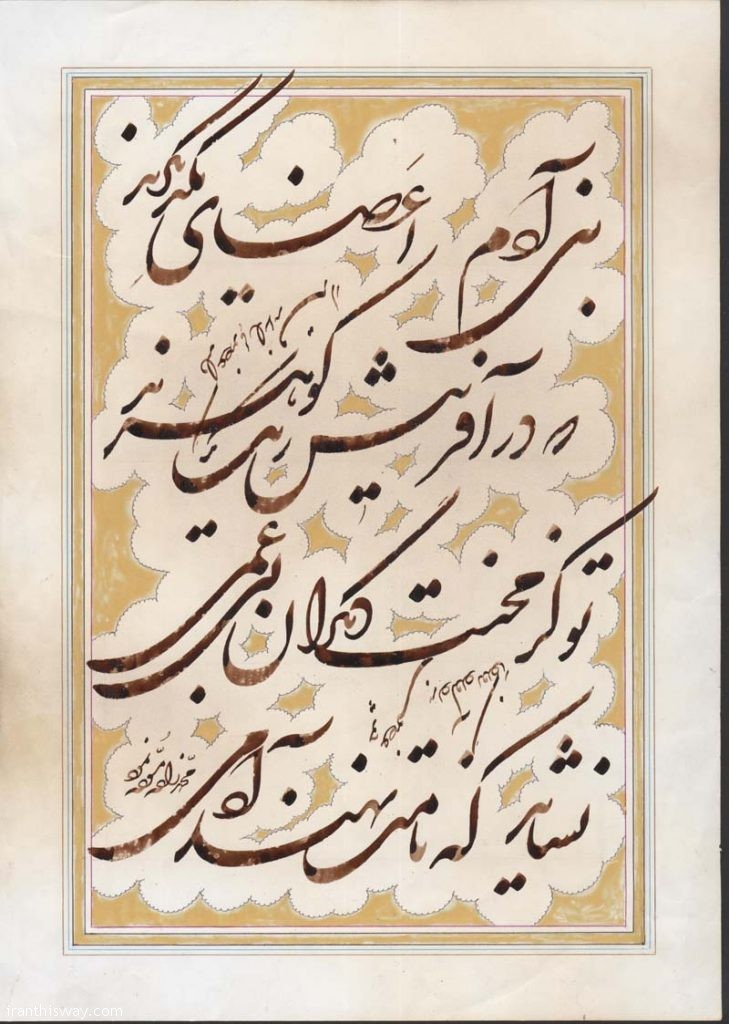the 20 of April is “Saadi’s Day” in IRAN. Many lovers of the great Persian poet Saadi gather at his grave in Shiraz and read his poetry.
Saadi distinguished between the spiritual and the practical or mundane aspects of life. In his Bustan, for example, spiritual Saadi uses the mundane world as a spring board to propel himself beyond the earthly realms. The images in Bustan are delicate in nature and soothing. In the Gulistan, on the other hand, mundane Saadi lowers the spiritual to touch the heart of his fellow wayfarers. Here the images are graphic and, thanks to Saadi’s dexterity, remain concrete in the reader’s mind. Realistically, too, there is a ring of truth in the division.
The Sheikh preaching in the Khanqah experiences a totally different world than the merchant passing through a town. The unique thing about Saadi is that he embodies both the Sufi Sheikh and the travelling merchant. They are, as he himself puts it, two almond kernels in the same shell.
Who is Saadi Shirazi?
Saadi Shirazi, Sheikh Mosleh al-Din, was born in Shiraz around 1200. He died in Shiraz around 1292. He lost his father in early childhood. With the help of his uncle, Saadi completed his early education in Shiraz. Later he was sent to study in Baghdad at the renowned Nezamiyeh College, where he acquired the traditional learning of Islam.
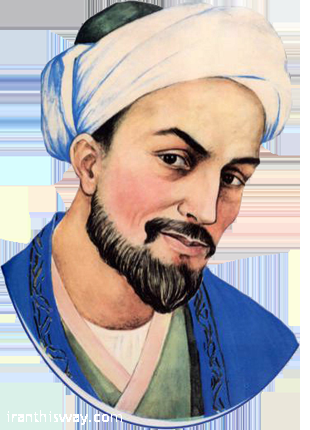 The unsettled conditions following the Mongol invasion of Persia led him to wander abroad through Anatolia, Syria, Egypt, and Iraq. He also refers in his work to travels in India and Central Asia. Saadi is very much like Marco Polo who traveled in the region from 1271 to 1294. There is a difference, however, between the two. While Marco Polo gravitated to the potentates and the good life, Saadi mingled with the ordinary survivors of the Mongol holocaust. He sat in remote teahouses late into the night and exchanged views with merchants, farmers, preachers, wayfarers, thieves, and Sufi mendicants. For twenty years or more, he continued the same schedule of preaching, advising, learning, honing his sermons, and polishing them into gems illuminating the wisdom and foibles of his people.
The unsettled conditions following the Mongol invasion of Persia led him to wander abroad through Anatolia, Syria, Egypt, and Iraq. He also refers in his work to travels in India and Central Asia. Saadi is very much like Marco Polo who traveled in the region from 1271 to 1294. There is a difference, however, between the two. While Marco Polo gravitated to the potentates and the good life, Saadi mingled with the ordinary survivors of the Mongol holocaust. He sat in remote teahouses late into the night and exchanged views with merchants, farmers, preachers, wayfarers, thieves, and Sufi mendicants. For twenty years or more, he continued the same schedule of preaching, advising, learning, honing his sermons, and polishing them into gems illuminating the wisdom and foibles of his people.
When he reappeared in his native Shiraz he was an elderly man. Shiraz, under Atabak Abubakr Sa’d ibn Zangy (1231-60) was enjoying an era of relative tranquility. Saadi was not only welcomed to the city but was respected highly by the ruler and enumerated among the greats of the province. In response, Saadi took his nom de plume from the name of the local prince, Sa’d ibn Zangi, and composed some of his most delightful panegyrics as an initial gesture of gratitude in praise of the ruling house and placed them at the beginning of his Bostan. He seems to have spent the rest of his life in Shiraz.
His best known works are the Bostan (The Orchard) and the Golestan (The Rose Garden). The Bostan is entirely in verse (epic metre) and consists of stories aptly illustrating the standard virtues recommended to Muslims (justice, liberality, modesty, contentment) as well as of reflections on the behaviour of dervishes and their ecstatic practices. The Golestan is mainly in prose and contains stories and personal anecdotes. The text is interspersed with a variety of short poems, containing aphorisms, advice, and humorous reflections. Saadi demonstrates a profound awareness of the absurdity of human existence. The fate of those who depend on the changeable moods of kings is contrasted with the freedom of the dervishes.
For Western students the Bostan and Golestan have a special attraction; but Saadi is also remembered as a great panegyrist and lyricist, the author of a number of masterly general odes portraying human experience, and also of particular odes such as the lament on the fall of Baghdad after the Mongol invasion in 1258. His lyrics are to be found in Ghazaliyat (“Lyrics”) and his odes in Qasa’id (“Odes”). He is also known for a number of works in Arabic. The peculiar blend of human kindness and cynicism, humour, and resignation displayed in Saadi’s works, together with a tendency to avoid the hard dilemma, make him, to many, the most typical and lovable writer in the world of Iranian culture.
Saadi distinguished between the spiritual and the practical or mundane aspects of life. In his Bostan, for example, spiritual Saadi uses the mundane world as a spring board to propel himself beyond the earthly realms. The images in Bostan are delicate in nature and soothing. In the Golestan, on the other hand, mundane Saadi lowers the spiritual to touch the heart of his fellow wayfarers. Here the images are graphic and, thanks to Saadi’s dexterity, remain concrete in the reader’s mind. Realistically, too, there is a ring of truth in the division. The Shaykh preaching in the Khaniqah experiences a totally different world than the merchant passing through a town. The unique thing about Saadi is that he embodies both the Sufi Shaykh and the traveling merchant. They are, as he himself puts it, two almond kernels in the same shell.
Saadi’s prose style, described as “simple but impossible to imitate” flows quite naturally and effortlessly. Its simplicity, however, is grounded in a semantic web consisting of synonymy, homophony, and oxymoron buttressed by internal rhythm and external rhyme. Iranian authors over the years have failed to imitate its style in their own language, how can foreigners translate it into their own language, no matter what language?
The world honors Saadi today by gracing the entrance to the Hall of Nations in New York with this call for breaking all barriers:
Of one Essence is the human race,
Thusly has Creation put the Base;
One Limb impacted is sufficient,
For all Others to feel the Mace.
Famous quotes by Saadi
A man is insensible to the relish of prosperity until he has tasted adversity.
I fear God and next to God I mostly fear them that fear him not.
The best loved by God are those that are rich, yet have the humility of the poor, and those that are poor and have the magnanimity of the rich.
Reveal not every secret you have to a friend, for how can you tell but that friend may hereafter become an enemy. And bring not all mischief you are able to upon an enemy, for he may one day become your friend.
Whoever acquires knowledge but does not practice it is as one who ploughs but does not sow.
The rose and the thorn, and sorrow and gladness are linked together.
O wise man, wash your hands of that friend who associates with your enemies.
Whatever is produced in haste goes hastily to waste.
How do I get to Carnegie Hall? Practice. Practice. Practice.

